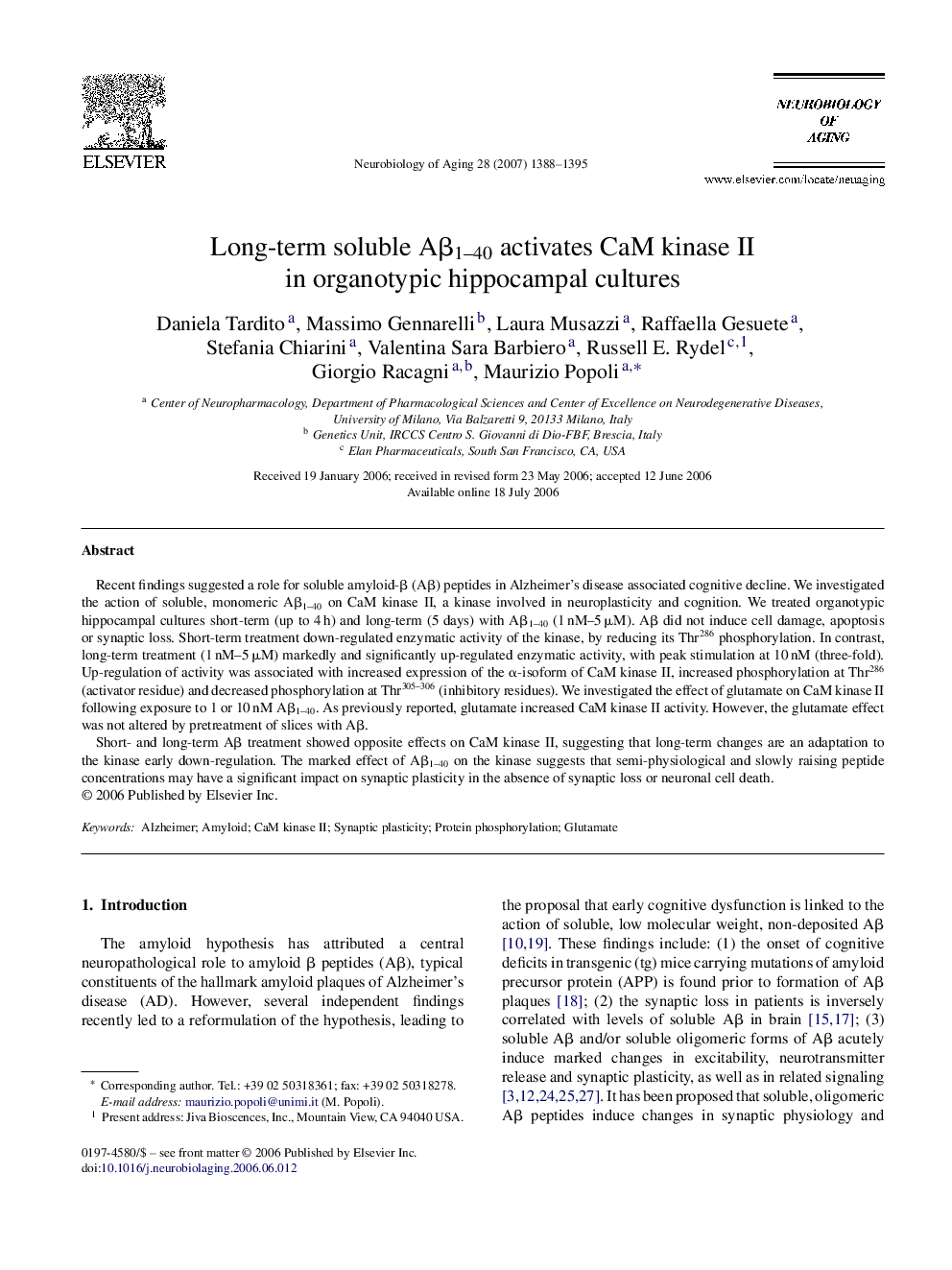| کد مقاله | کد نشریه | سال انتشار | مقاله انگلیسی | نسخه تمام متن |
|---|---|---|---|---|
| 330444 | 1433655 | 2007 | 8 صفحه PDF | دانلود رایگان |

Recent findings suggested a role for soluble amyloid-β (Aβ) peptides in Alzheimer's disease associated cognitive decline. We investigated the action of soluble, monomeric Aβ1–40 on CaM kinase II, a kinase involved in neuroplasticity and cognition. We treated organotypic hippocampal cultures short-term (up to 4 h) and long-term (5 days) with Aβ1–40 (1 nM–5 μM). Aβ did not induce cell damage, apoptosis or synaptic loss. Short-term treatment down-regulated enzymatic activity of the kinase, by reducing its Thr286 phosphorylation. In contrast, long-term treatment (1 nM–5 μM) markedly and significantly up-regulated enzymatic activity, with peak stimulation at 10 nM (three-fold). Up-regulation of activity was associated with increased expression of the α-isoform of CaM kinase II, increased phosphorylation at Thr286 (activator residue) and decreased phosphorylation at Thr305–306 (inhibitory residues). We investigated the effect of glutamate on CaM kinase II following exposure to 1 or 10 nM Aβ1–40. As previously reported, glutamate increased CaM kinase II activity. However, the glutamate effect was not altered by pretreatment of slices with Aβ.Short- and long-term Aβ treatment showed opposite effects on CaM kinase II, suggesting that long-term changes are an adaptation to the kinase early down-regulation. The marked effect of Aβ1–40 on the kinase suggests that semi-physiological and slowly raising peptide concentrations may have a significant impact on synaptic plasticity in the absence of synaptic loss or neuronal cell death.
Journal: Neurobiology of Aging - Volume 28, Issue 9, September 2007, Pages 1388–1395